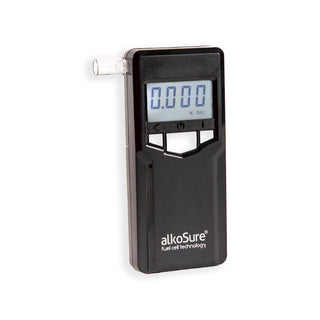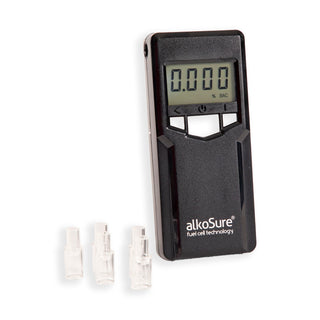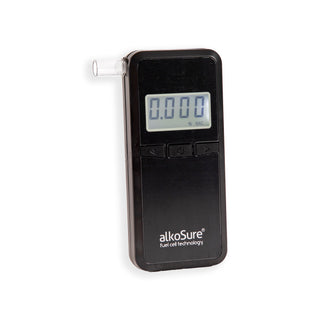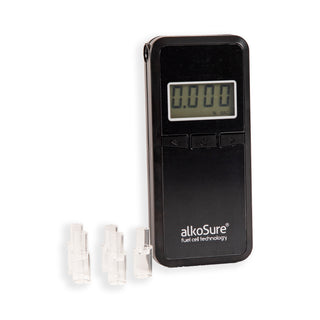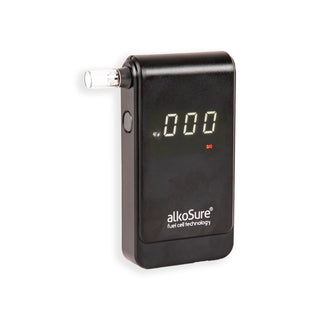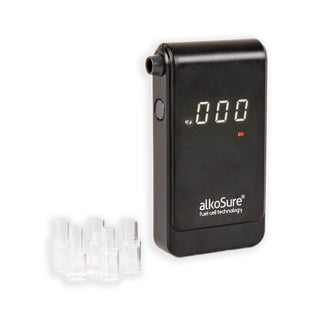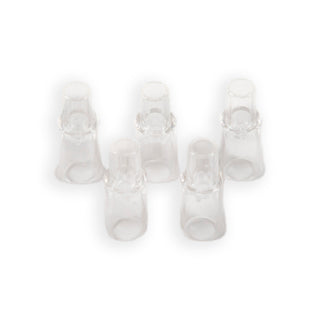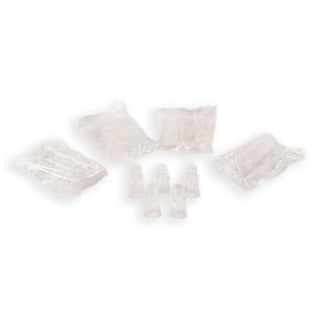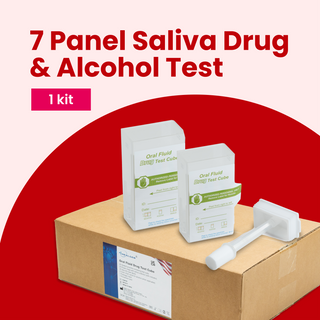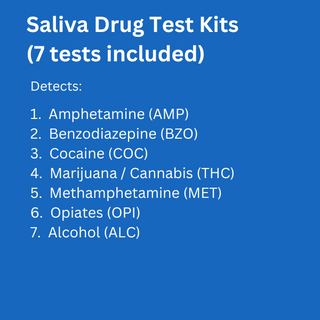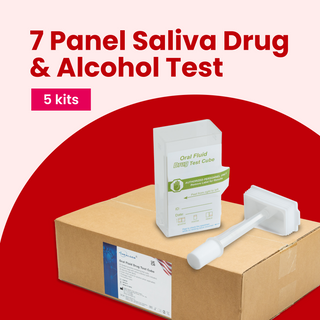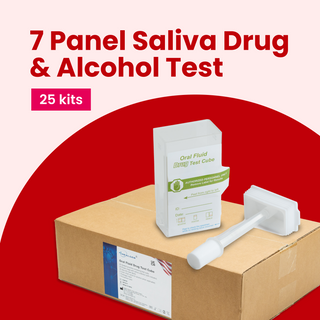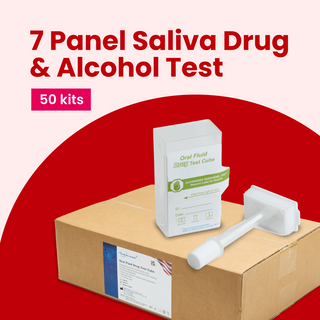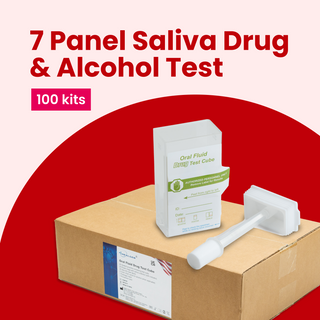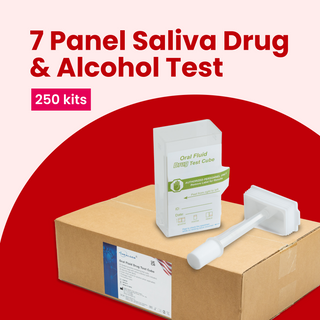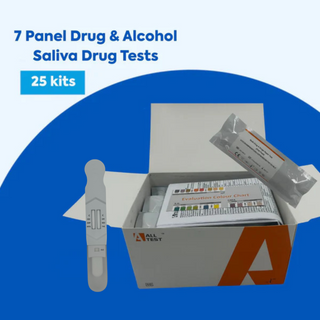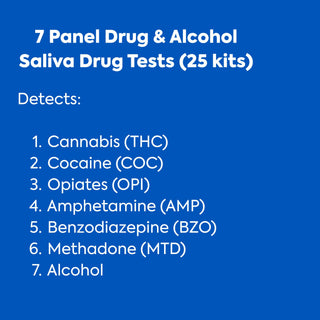Workplace Alcohol and Drug Testing Kits

24-Hour Express Shipping in UK

Quality Checked By Our Expert Team

Certified Drug & Alcohol Testing Kits

24-Hour Express Shipping in UK

Quality Checked By Our Expert Team

Certified Drug & Alcohol Testing Kits
Sort + Filter
Let customers speak for us
Drug Testing Kits UK offers a wide range of workplace alcohol and drug testing kits, including test cups, dipsticks, and cassettes. Whether you need dependable workplace drug testing kits or alcohol testing kits, our rapid drug and alcohol test kits are the perfect solution. They are not only affordable but also boast a 99% accuracy rate.
Instructions for Using Workplace Alcohol and Drug Testing Kits
Using workplace alcohol and drug testing kits is a straightforward process, but following the instructions carefully is important to ensure accurate results. Here are some general steps to guide you:
Read the Instructions: Before using any testing kit, thoroughly read the instructions provided by the manufacturer. This will give you an overview of the specific steps you need to follow and any precautions you should take.
Prepare the Test Area: Make sure the area where you'll be conducting the test is clean and well-lit. Lay out all the components of the test kit within easy reach.
Collect the Sample: Depending on the type of test kit you're using, you'll need to collect a sample of urine, saliva, or breath. Follow the instructions for the specific type of sample collection required.
Perform the Test: For urine tests, you'll typically dip the test strip or cassette into the sample for a specified amount of time. For saliva tests, you may need to swab the inside of the person's mouth. Breathalyzers require the person to blow into a mouthpiece.
Wait for the Results: After performing the test, wait for the time specified in the instructions for the results to appear. This can vary from a few minutes to up to 15 minutes, depending on the test.
Interpret the Results: The results are usually indicated by the appearance of lines or symbols on the test strip or cassette. Refer to the instructions to understand what the results mean.
Dispose of the Test Kit: After you've recorded the results, properly dispose of the used test kit and any other materials according to the instructions.
Can any Drug Test Detect Alcohol?
Not all drug testing kits can detect alcohol. Still, Our drug and alcohol testing kits at Drug Testing Kits UK are designed with precision and user convenience in mind, ensuring reliability and accuracy. Each kit undergoes rigorous quality control checks and is manufactured to meet industry standards, providing you with results you can trust. With a 99% accuracy rate and a variety of testing options, including test cups, dipsticks, and cassettes, our kits offer a dependable solution for detecting substance use in various settings.
Factors That Determine How Long Drugs Stay in a Body
Understanding how long drugs stay in the body is crucial for accurate drug testing. Various factors influence this duration, impacting the choice of drug test and detection window. Here are some key factors:
Frequency and Dosage: The amount and frequency of drug use significantly affect detection times. Occasional users may have shorter detection windows compared to regular users.
Body Mass and Physical Activity: A person's body mass, level of physical activity, and hydration can influence how long drugs remain detectable. Drugs may linger longer in individuals with higher body fat due to accumulation in fatty tissues.
Type of Drug: Different drugs have varying half-lives, which determines the length of time they remain in the system. For example, benzodiazepines typically have a longer half-life than Valium.
Drug Tolerance: Regular users may develop a tolerance to certain drugs, leading to faster metabolism and shorter detection periods.
Co-consumption of Substances: The presence of other substances, such as alcohol, can extend the duration a drug stays in the body.
Other Factors: Age, ethnicity, gender, and existing medical conditions can also influence drug elimination rates.
What Is Random Roadside Drug Testing?
Random roadside drug testing involves traffic or police officers conducting on-the-spot drug tests to assess whether drivers are under the influence of drugs. Key points include:
Implementation: The practice was introduced in the UK in 2005 as a measure to enhance road safety.
Testing Device: Officers use a handheld device called a dialyser to analyze a saliva sample from the driver.
Drugs Tested: The drug analyzer can detect the presence of substances such as cocaine, ecstasy, methadone, ketamine, benzodiazepines, morphine, and cannabis.
Follow-up Procedure: If the test result is positive, the driver is taken to a police station for further testing through blood or urine samples.
What Is the Most Common Drug and Alcohol Test?
The most common drug and alcohol test is the workplace urine drug test. It is widely used due to its ease of use, quick results, affordability, and ability to detect a wide range of substances. For alcohol testing, breathalyzers are the most commonly used method, providing instant results and measuring blood alcohol content (BAC).
Can any Drug Test Detect Alcohol?
No, not all drug testing kits are designed to detect alcohol. At Drug Testing Kits UK, our specialized alcohol and drug testing kits are specifically created to provide reliable and accurate detection of alcohol, among other substances. Each kit is meticulously crafted to ensure user convenience and precision, undergoing rigorous quality control checks and adhering to industry standards. With a 99% accuracy rate and various testing options such as test cups, dipsticks, and cassettes, our kits offer a comprehensive solution for identifying substance use in numerous settings, including workplaces, homes, and clinical environments.
What Factors Determine How Long Drugs Stay in a Person's Body?
The duration drugs remain detectable in the body can vary greatly depending on several key factors. These include the frequency and dosage of drug use, where occasional users may have shorter detection windows than regular users. The individual's body mass, physical activity levels, and hydration also play significant roles, as drugs can accumulate in fatty tissues and linger longer in those with higher body fat. The type of drug consumed affects this as well, with some substances having longer half-lives than others. Additional factors like drug tolerance, co-consumption of other substances, age, ethnicity, gender, and pre-existing medical conditions can influence how quickly drugs are metabolized and eliminated from the body. Understanding these factors is crucial for choosing the appropriate drug test and accurately interpreting its results.
How Soon After Consumption Can Workplace Alcohol and Drug Testing Kits Detect Substance Use?
Workplace alcohol and drug testing kits are designed to detect substances within a short time frame after consumption. For alcohol, detection can be almost immediate, as it appears in saliva roughly 10-15 minutes after consumption and can be detected for up to 12-24 hours. For drugs, the detection window varies depending on the substance: some drugs can be detected within minutes, while others may not be detectable for several hours after use. Typically, these kits are effective in identifying substance use within 1-2 days prior to the test. However, the detection window can vary based on factors such as the type of drug, the amount consumed, and the individual's metabolism.
Are Workplace Alcohol and Drug Testing Kits Legally Compliant for Use in Employee Screenings?
Yes, workplace alcohol and drug testing kits are generally designed to be legally compliant for use in employee screenings, within the regulatory frameworks set by governing bodies in most jurisdictions. However, the legal compliance of using these kits for employee screenings can depend on local laws and regulations, which may vary by country, state, or region. Employers are advised to consult legal counsel to ensure their testing policies and procedures adhere to applicable laws, including privacy rights, consent requirements, and any specific regulations regarding the type of tests that can be administered. Additionally, it's important for employers to use testing kits that are FDA-approved or meet the standards set by relevant health and safety authorities to ensure reliability and legal defensibility of the test results.
How Accurate Are Our Drug & Alcohol Testing Kits?
Our saliva drug tests offer exceptional accuracy, verified through a thorough evaluation. Conducted by three independent operators on our saliva samples, the results demonstrate:
- 92.5% accuracy for detecting positive results: This indicates that when the test shows the presence of cocaine, it is correct 92.5% of the time.
- 100% accuracy for detecting negative results: This ensures that when the test indicates the absence of cocaine, it is always accurate.
Moreover, our tests maintain their reliability under varying conditions, such as different hydration levels and the presence of other substances. Common interfering factors do not influence them.
Overall, our drug tests are very dependable and consistent, making them an excellent choice for accurately identifying cocaine use.




 03333 704 704
03333 704 704


